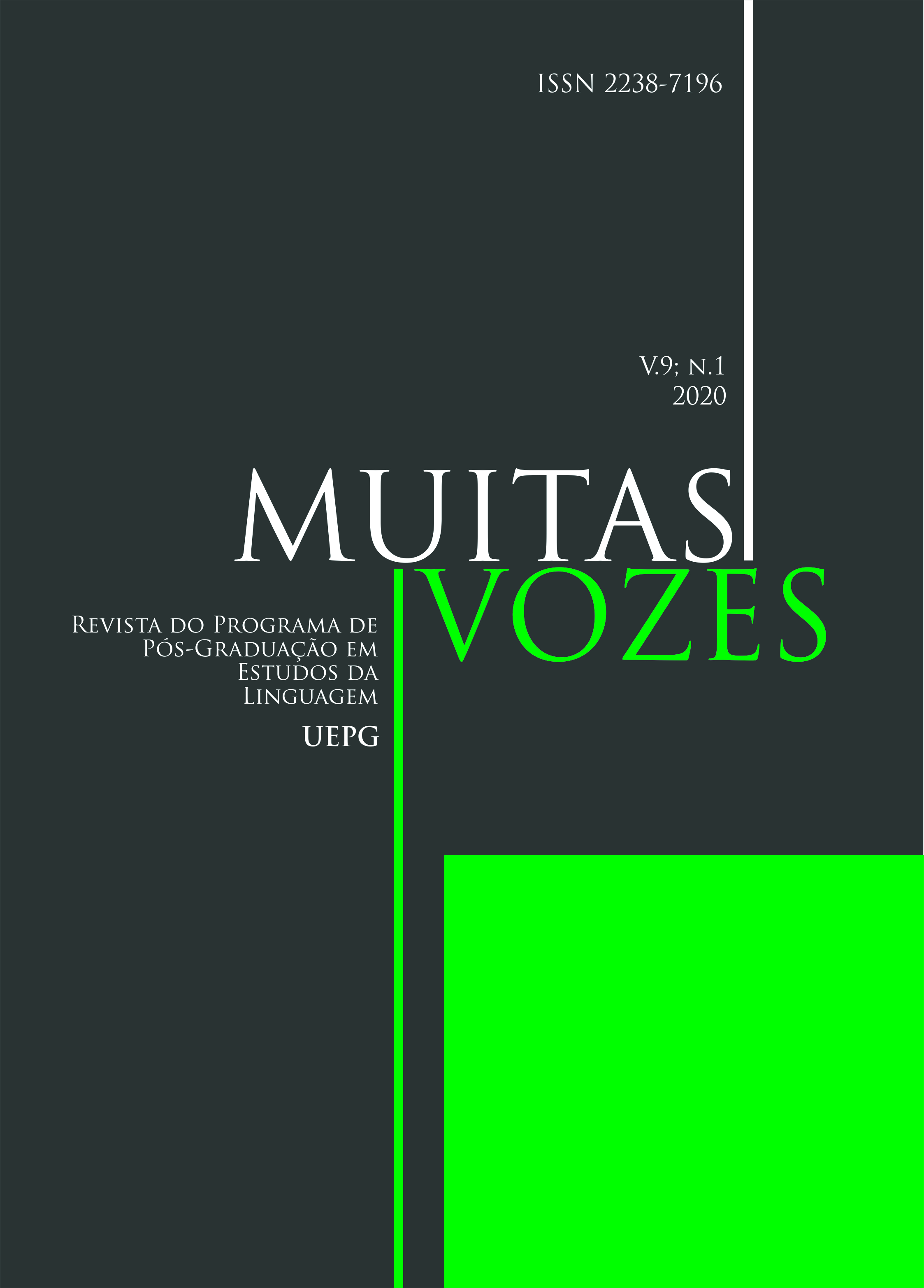REESCRITURAÇÕES DO SENTIDO DE LÍNGUA NO IMAGINÁRIO DO SENSO COMUM: O FUNCIONAMENTO SEMÂNTICO DO (RE)DIZER
Resumo
Este artigo é parte de uma pesquisa de Mestrado que teve como objetivo compreender os sentidos de língua no imaginário do senso comum, na perspectiva linguística da semântica enunciativa. Propõe-se a analisar como se dá o funcionamento semântico do (re)dizer no processo analítico de reescrituração. O aporte teórico-metodológico dá-se a partir da Teoria da Enunciação, pelo viés da Semântica do Acontecimento (GUIMARÃES, 2002b). Dessa forma, com os operadores enunciativos da reescrituração referidos, analisam-se os sentidos de língua presentes no imaginário do senso comum, e, posteriormente, a recorrência dos modos de reescrituração e seu funcionamento semântico. Observou-se que os modos de substituição e repetição são os mais usados, movimentando sentidos de especificação, sinonímia e definição. Os modos e os sentidos de reescrituração permitem inferir sobre o quanto ainda se confunde, no discurso do senso comum, o uso escrito e falado da língua, em que se atribui a correção e a norma à modalidade oral. Assim, surge um conflito entre o funcionamento linguístico e o funcionamento enunciativo, em que o “bem falar” é idealizado e funciona como critério que qualifica, ou não, o sujeito para ocupar os espaços sociais de poder e visibilidade, bem como os enunciados apresentam o ponto de vista de uma língua imaginária.
Downloads
Downloads
Publicado
Como Citar
Edição
Seção
Licença

Este obra está licenciado com uma Licença Creative Commons Atribuição 4.0 Internacional.
Transferência de direitos autorais: Caso o artigo submetido seja aprovado para publicação, JÁ FICA ACORDADO QUE o autor AUTORIZA a UEPG a reproduzi-lo e publicá-lo na REVISTA MUITAS VOZES, entendendo-se os termos "reprodução" e "publicação" conforme definição respectivamente dos incisos VI e I do artigo 5° da Lei 9610/98. O ARTIGO poderá ser acessado tanto pela rede mundial de computadores (WWW - Internet), como pela versão impressa, sendo permitidas, A TÍTULO GRATUITO, a consulta e a reprodução de exemplar do ARTIGO para uso próprio de quem a consulta. ESSA autorização de publicação não tem limitação de tempo, FICANDO A UEPG responsável pela manutenção da identificação DO AUTOR do ARTIGO.



